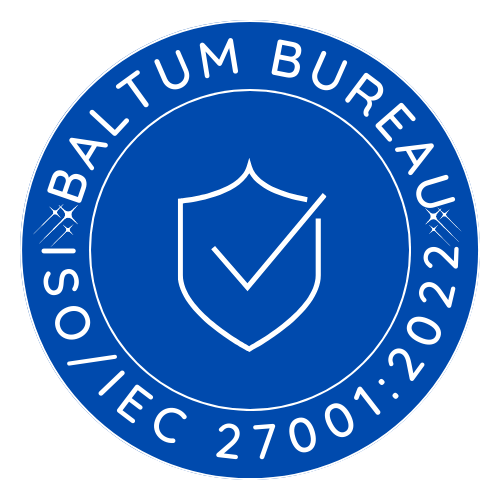Understanding ISO 27001 certification:
ISO 27001 Certification is a vital asset in cybersecurity, offering organizations a systematic approach to safeguarding information assets. This international standard establishes requirements for implementing and maintaining an Information Security Management System (ISMS). Certification involves a rigorous assessment of controls and processes, ensuring robust protection against cyber threats. Attaining ISO 27001 not only signals a commitment to information security but also enhances trust among stakeholders. This certification is a strategic investment, providing organizations with a competitive advantage in today’s digitized landscape. In a dynamic cybersecurity environment, understanding and adopting ISO 27001 is essential for fostering resilience and proactive security measures.
Step 1: Security Assessment Before ISO 27001 Certification
Prior to ISO 27001 Certification, a thorough security assessment is crucial. This evaluation identifies vulnerabilities, assesses risks, and strengthens the Information Security Management System (ISMS). Ensuring alignment with ISO 27001 requirements, the pre-certification assessment addresses potential gaps, enhancing the likelihood of a successful certification.
Undertaking an infrastructure security assessment confirms that the current infrastructure aligns with ISO 27001 standards. In some instances, redesign may be necessary to fortify the Information Security Management System (ISMS).
Step 2: Penetration Test
- Identifying Vulnerabilities: Penetration testing helps uncover vulnerabilities in both the infrastructure and applications. Identifying weaknesses allows organizations to address and mitigate potential security risks.
- Ensuring Security Controls Effectiveness: Through simulated cyber-attacks, penetration testing evaluates the effectiveness of existing security controls. This ensures that the implemented measures align with ISO 27001 requirements.
- Meeting Compliance Standards: ISO 27001 requires organizations to implement a robust Information Security Management System (ISMS). Penetration testing demonstrates adherence to these standards by validating the security measures in place.
- Risk Management: Penetration testing provides insights into potential security risks, allowing organizations to prioritize and address them based on their impact. This aligns with ISO 27001’s emphasis on risk management.
- Continuous Improvement: The ISO 27001 standard emphasizes a continual improvement approach to information security. Regular penetration testing helps organizations stay ahead of evolving threats, promoting a proactive security stance.
Step 3: Documents preparation
Obtaining ISO 27001 certification involves the preparation of several key documents. These documents collectively form the foundation of an organization’s Information Security Management System (ISMS). Essential documents for ISO 27001 certification include:
- Information Security Policy: This document outlines the organization’s commitment to information security, establishing the overarching principles and objectives for the ISMS.
- Risk Assessment and Treatment Plan: A comprehensive risk assessment identifies and evaluates potential threats, vulnerabilities, and impacts. The associated risk treatment plan outlines measures to mitigate identified risks.
- Statement of Applicability (SoA): The SoA details the control objectives and controls selected for implementation, based on the results of the risk assessment and the organization’s risk treatment decisions.
- Information Security Manual or Procedures: These documents provide detailed guidelines on how specific security processes and controls are implemented within the organization.
- Documented Information Control Procedure: Outlining how documents are controlled, distributed, and maintained, this procedure ensures the integrity and availability of ISMS documentation.
- Incident Response and Management Procedures: Procedures for identifying, reporting, and responding to information security incidents are crucial for effective incident management.
- Internal Audit Procedure: This outlines the process for conducting internal audits to assess the effectiveness of the ISMS and ensure ongoing compliance.
- Management Review Meeting Minutes: Records of management reviews demonstrate leadership involvement and commitment to the continual improvement of the ISMS.
- Training and Awareness Program: A documented program ensures that employees are adequately trained and aware of their responsibilities in maintaining information security.
- Supplier Security Policy: If applicable, this policy outlines the information security requirements for third-party suppliers and partners.
- Evidence of Corrective Actions: Records of corrective actions taken in response to non-conformities identified during internal audits or management reviews.
Tenendo — ISO 27001:2022 certified company
ISO 27001 certification showcases our firm commitment to information security, reflecting a robust management system. Meeting its stringent standards assures partners that we prioritize safeguarding their sensitive data. Our proactive approach involves comprehensive risk management and continuous improvement. This certification signifies not just compliance but a dedication to staying ahead of evolving digital threats.
By aligning with ISO 27001, we offer partners a solid foundation for collaboration, building enduring relationships based on trust and reliability. Our commitment to information security enhances credibility, providing a competitive edge in today’s data-centric landscape. This certification is not only about compliance but also about continuous improvement and a proactive stance against information security risks.
Preparation For ISO 27001 Certification ACTION PLAN
Tenendo provides expert guidance on the planning, the definition of the scope, support of the decision-making processes, risk management, project management, the definition of resources and competencies, implementation controls, and support during the certification process.

Related Tenendo Services
Security Awareness Training
Security awareness training equips individuals with knowledge to recognize and counter cyber threats. By fostering a culture of vigilance, it empowers teams to safeguard information, reducing the risk of security breaches.
Security Assessment
By analysing and fortifying weaknesses, organizations safeguard sensitive data and maintain a vigilant defence against evolving security challenges.
Penetration Test
Penetration testing, integral to security certifications, assesses system vulnerabilities. Rigorous and ethical, it validates security measures, ensuring compliance and fortifying defences against cyber threats in certification processes.


